- Home
- Lorenzo Carcaterra
Street Boys Page 4
Street Boys Read online
Page 4
The explosion rocked the church to its foundation. Thick shards of marble and wood flew through the air, mixing in a violent dance with the shattered columns and broken glass hurtling toward the ceiling that was lined with a painting of Saint Catherine, her arms spread wide, surrounded by angels riding on puffs of clouds. Below her, buried under the collapsed altar and the mounds of destruction set off by the blast of a German mine, the bodies of Antonio and Giancarlo Bardini lay facedown and still, the darkened remains of the cross resting between them.
Their war had finally found its end.
6
MAIN STREET OUTSIDE THE CHURCH OF SANTA CATERINA
A FORMIELLO, NAPLES. SEPTEMBER 26, 1943
Vincenzo and Franco lead a slow-moving contingent of two hundred or so boys and girls through the empty streets of Naples. They walked with their heads down and in silence, the few belongings they had left bundled up inside of old shirts and flung over their shoulders. “When do you think we can come back?” Franco asked, wiping sweat from his brow with a torn rag.
“Maybe never,” Vincenzo said.
The front door of the church blasted open. Shards of marble, wood and shattered glass embraced the street. Vincenzo and Franco scattered to the ground, covering their heads against the force of the fiery blast. Behind them, the other children scampered for any visible signs of cover, thick streams of smoke covering them like a warm brown blanket. A large marble statue of Saint Catherine was knocked off its pedestal and fell facedown across the front of the church entryway, splintering into two large chunks.
Vincenzo got to his feet and waded through the burning smoke, making his way to the front entrance, now nothing more than a small wall of silent flames. He stood there for several long seconds, the smoke washing past him, the fire licking at his legs and arms, before stepping into the remains of the church. He walked past the crumpled piles of wood and stone, rays of sunlight slicing in through the cracks in the stained-glass windows from above. He stopped in front of the main altar, its thick marble split in two, one side resting at a slant, its sharp ends imbedded against a side wall. A thin river of smoke floated past his legs and his eyes were tinged red from the heat and flames. He shifted his feet and brushed against a rolled-up set of rosary beads. Vincenzo bent down, dropped his hand into the clouds of smoke and picked them up. He stared at them, letting the beads rest against the sides of his fingers. He closed his hands around them, bowed his head, turned and walked out of the church.
He stepped through the charred opening and walked past Franco and Angela, ignoring the faces of the boys and girls who stood in a large huddle around the front entrance and walked back toward the center of the city. “Where are you going?” Franco asked.
“I’m staying,” Vincenzo said, not bothering to turn or lift his head.
“And do what?” Franco asked.
Vincenzo stopped, gazed at the faces that surrounded him, frightened and confused, all grouped together on an empty street across from a burning church. He took a deep breath, the smoke still burning his lungs, and looked at Franco. “Kill as many of them who come back as I can. Until they kill me.”
“You walk into a grave if you do that,” Franco said, stepping closer to him, Angela by his side.
“If I’m going to die, I’ll die here,” Vincenzo said. “In my city. On my streets.”
Vincenzo looked up at the black smoke billowing from the church and then into the eyes of the faces surrounding him. He lowered his head, turned slowly and walked back down the center of the street.
Franco and Angela watched him go. They stood in silence, their breath coming in spurts, their faces and necks tinged with sweat. They looked at each other and nodded, then started to walk toward Vincenzo, following him back into the heart of the city. The crowd of more than two hundred milled nervously about, mumbling in low tones or exchanging furtive glances, apprehension and indecision the rule of the moment. Then, the wave back began. Three boys broke from the pack and followed Franco and Angela. Soon, five more trailed them. And then another five. Then, eight others gathered their belongings and shifted direction.
In all, it took less than fifteen minutes for the entire band of street boys and girls to turn and begin a slow walk back to nowhere.
7
PALAZZO CESARINO, NAPLES
SEPTEMBER 26, 1943
Carlo Maldini stood against the side of a broken window and stared down at the street below. He took a long drink from a half-empty bottle of wine. He watched the flames bring down the walls of what had once been his favorite church, too used to violence to be moved by what he saw, unaware that two boys had perished in the blast, all in the quest for a silent prayer. Maldini was fifty-six years old, dark hair tinged white at the sides, face speckled with the remnants of a three-day growth. He was thin but muscular, bones built solid after many years spent running a railroad engine for the Italian National Service. His clothes were old, torn and in need of a cleaning. On most days, Maldini was too deep into his wine to notice.
The burdens of war had turned Carlo Maldini into a weathered man with a sad face. Benito Mussolini’s dream of an Italian empire spanning continents had cost Carlo a wife and two sons and filled him with an anger and frustration that bordered on madness. He rubbed a soot-smeared hand across his forehead and gulped down another mouthful of wine. He had spent many a Sunday in that church, walking side by side with his family, their heads bowed in solemn prayer, listening to soft words of peace spoken by a priest too young to comprehend the eventual price of war.
He gazed up the street and watched the large group of children march back down the main road, their final destination unknown to him. He turned his head and stared across at the young woman standing with her arms folded and her eyes focused on the activity below. She looked so beautiful in the early-morning sunlight that filtered in through the huge holes in what was left of their home. From where he stood, staring at her through the glazed effect of one too many bottles of wine, the woman looked exactly like her mother. She had long dark strands of hair gently brushing the tops of her shoulders, a round, unlined face filled with the power and passion of her youth, and olive-shaped eyes that could easily burn a hole through the very soul of a man. Her name was Nunzia. She was twenty years old and his daughter, the only child he had left to lose.
Maldini could not leave Naples when the Germans had ordered the evacuation of the city. He was too drunk and too crammed with rage even to move. He cowered in the basement of his building, hiding behind long-discarded bureaus, his Nunzia at his side.
“We must go,” she had said to him. “We’ll hide in the mountains and then make our way north, up toward the Americans.”
Maldini could only mumble senseless words about a family he no longer had and happier days he would no longer see. He tried pushing his daughter away, struggling to free himself of her grip. “I won’t leave you here,” Nunzia said, her tender voice filled with defiance.
“There’s nothing left for me, little angel,” Maldini said to her, a sad smile crossing his lips, one hand gently caressing his daughter’s hair. “I have my wine and my memories. That’s all a man like me needs.”
“I’m staying by your side, Papa,” Nunzia said.
“Your mother was stubborn,” Maldini said, a rush of madness in his voice. “She wouldn’t leave either, not when I asked her to. Begged her to. And now she’s dead. They’re all dead. And those that aren’t will soon join them.”
“Then we will die here, Papa,” Nunzia said. “In Naples, where you belong. Where we both belong.”
“You don’t belong with a drunk,” Maldini said.
“I belong with my father,” Nunzia replied.
Maldini swallowed a long drink of wine and rubbed the visions from his eyes. He stared at his daughter as she turned her look toward him.
“What will they do?” Nunzia asked.
“Something foolish, no doubt,” Maldini said.
“I heard a rumor in the piazza yesterday,�
�� Nunzia said. “From Signora Matturano. She told me while we were pulling up water from the well.”
Maldini rested his head against a cracked wall and snickered. “Americans are in Salerno fighting,” he said. “Nazi soldiers are spread throughout Italy. And what are the Italians doing? Spreading rumors. If medals were given out for gossip and rumors, Italy would be crowned champion every year.”
“She said the Nazis were coming back,” Nunzia said, ignoring her father’s sarcasm.
“Let them come,” Maldini said with an indifferent shrug. “There’s nothing left for them to take.”
Maldini took a long swig of the wine and rested the bottle on the wooden sill. He stared out the window as the caravan of children began to disappear from view. “And how does Signora Matturano know all this?” he asked. “Did the Nazis call and tell her?”
“She said there were leaflets dropped from planes,” Nunzia said. “Her grandson, Franco, showed her one. He’s in that group of children down there. I can take you to meet them. I know where they’ll sleep tonight.”
Maldini looked away from the window and stared at his daughter. “Why would I want to do something so crazy?” he asked.
“To help them, Papa,” she said. “In case the Nazis come back.”
“Help them get killed!” Maldini shouted, his voice echoing off the barren walls. “Have I not seen enough of my own blood lost? Now you ask me to put the lives of strangers on my head, too. Leave it as it is, little one. Each to his own destiny.”
“If they’re staying and the Germans are coming back, they’ll be forced to fight,” Nunzia said, not backing down. “With your help or without. If that happens, most of them will die.”
“That’s a decision for them to make,” Maldini said. “Not for me. Take a good look at me, Nunzia. Open your eyes and look beyond your father and see instead the madman who sits in his place. Then tell me, what help can that be to any man or boy?”
“You can tell them what they don’t know, Papa,” Nunzia said, stepping closer to her father.
“And what is it you think this old drunk knows, little girl?” Maldini asked.
“You know about the guns,” Nunzia said.
8
PIAZZA PLEBISCITO, NAPLES
SEPTEMBER 26, 1943
Vincenzo stood in the center of the largest square in Naples, surrounded by the Palazzo Royale and the church of San Francisco di Paola. Hundreds of children were spread throughout the square, waiting for some direction, some voice to tell them what to do. Franco and Angela walked past the crowd and stood across from Vincenzo, their backs cooled by the shadows of a large statue.
“I counted twenty-three knives and four handguns,” Franco said. “One of them looks like it works.”
“A map of the city would be a good thing to have,” Vincenzo said.
“So would more guns,” Angela said.
“We need to keep the youngest children out of sight,” Vincenzo said. “We don’t know what’s coming and when, but we have to keep them safe. They should have gone to the hills.”
“We can use them as messengers if we need to,” Franco said. “Nothing more than that.”
Vincenzo walked around the large square, staring at the ground, gazing under piles of rubble, looking down at shattered cobblestones. “Not every bomb the Nazis dropped on us exploded. There are at least a dozen here in the square.”
“If we can find some carts, we can gather them up,” Franco said.
“How do you know the bombs will be of any use?” Angela asked. “They didn’t explode when they were dropped from a plane. What are we going to do? Slide them toward the Germans?”
“I have no idea,” Vincenzo said, with a voice filled with weary irritation. “All I know is they are bombs and that they do explode.”
Angela turned and sat under the shadow of the bronze statue of King Ferdinand I, leaning her back against the cold marble. “You haven’t said anything about me being a girl,” she said.
“What’s there to say?” Vincenzo said with a slight shrug. “You want to stay, you can stay. Girl or not.”
“Would you turn me away if you could?” she asked.
“You’re not the first girl to fight for Naples,” Vincenzo said. “Eleonora Fonseca fought in the rebellion in 1799. Did pretty well, too, at least from what I read about her. She helped in the victory that made the city a republic.”
Angela nodded her head. “What else do you know about her?”
Vincenzo walked closer to Angela, a sparkle in his eyes. “She had her moments,” he said. “When the Cardinal came to power, he had the leaders of the uprising punished. He ordered Fonseca taken to the Piazza Mercato. She was put on a scaffold and executed.”
Vincenzo glanced over Angela’s shoulder and winked at Franco. “Cheer up,” he said to her. “Nazis don’t use scaffolds.”
“How many of them will there be?” Angela asked, a slight trace of fear creeping into her diffident manner.
“We won’t know until they’re back in the city,” Vincenzo said. “If they really do come back.”
Angela looked around her, at the boys and girls spread throughout the square, sitting under the warmth of a loving sun. “How do we keep them alive?” she asked.
Vincenzo stayed silent for several minutes before answering. “The streets are our best weapon,” he said. “We use what they give us. The dark alleys and the paths under the sewers. Hidden walkways inside churches and museums. Tunnels outside the railroad station, guard towers of Saint Efremo, castle grottos that lead out to sea. If we use all that, we can fight and never be seen. We’ll be an invisible army. One that can beat the Nazis.”
“Beat them!” Franco said with an air of frustration. “Entire armies couldn’t beat them. They’ve killed over four hundred thousand Neapolitans and none of us has even seen a German soldier except from a distance. But you can talk about beating them with an invisible army of children. The words of one lunatic put us in this place, Vincenzo. I’m not ready for the words of another.”
“It’s been tried before,” Vincenzo said. “Against an army just as formidable.”
“When?” Franco asked.
“The sixteen hundreds, during the Spanish rule,” Vincenzo said, “a young fishseller named Aniello led a band of rebels against Ponce De Leon. They were short on weapons, but used what they had and fought well. Not very different from what faces us.”
“What happened to them?” Angela asked.
“They were betrayed,” Vincenzo said, jamming his hands in his pockets. “And Aniello was captured. The Spanish cut up his body and tossed it on top of a large pile of cow shit.”
Franco looked at Vincenzo and grinned. Angela leaned her head down and covered her mouth.
“What?” Vincenzo asked.
“If you’re going to keep telling us these stories of yours,” Angela said, “it might be nice if one of them, just one, ended on a happy note.”
9
16TH PANZER DIVISION, FIFTY MILES OUTSIDE OF ROME
SEPTEMBER 26, 1943
Colonel Rudolph Von Klaus raised his head up to the warm sun, helmet resting on the edge of the tank, goggles loose around his neck. He found the ride down the coastline, dotted with farmlands and vineyards, a peaceful one and a welcome break from the toils of war. His troops seemed equally invigorated, each soldier eager to complete his mission in Naples and head home for some promised relief. He wondered what they would find back in Germany. Would their cities and towns be as battered as those they had crushed in Italy? Would their people be as withered and beaten down, as weary as the Italians he encountered, who seemed to have surrendered their very souls to a lost cause? No one, Von Klaus believed, could comprehend the cost of war more than a military man, and no one bore its damaging effects more than an innocent civilian. He was relieved it would all soon be at an end.
He caught the movement behind the large bush out of a corner of his eye.
Von Klaus tapped one hand on the inside lid of t
he tank and reached for his revolver with the other. The machine-gun unit shifted under him, moving slowly to its right, the bush in its target sites. “Draw him out,” Von Klaus said in a calm voice.
Six machine-gun rounds pelted at the dirt around the bush, kicking up small armies of dust and rocks. Within seconds, two small, thin arms were raised up, barely visible beyond the lush leaves of the bush. “Hold fire,” Von Klaus ordered.
Von Klaus watched as a barefoot boy in shorts and a dirty white T-shirt stepped out from behind the bush and walked toward his tank, arms still raised. The boy stopped at the edge of a dirt patch, his round face looking up at the colonel. Von Klaus stared down at the boy, momentarily flashing on an image of his own son, and hoped his child would never have to endure such conditions. “How old are you?” Von Klaus asked him. He spoke in a fluent Italian he had quickly mastered during a year spent as a student in Florence.
“Seven,” the boy answered. He spoke without either hesitation or fear.
“And what were you doing back there?” Von Klaus asked.
“Hiding,” the boy said.
The soldiers surrounding him erupted into chuckles and laughter. Von Klaus looked around at his men and then back to the boy. “You’re not very good at it,” he said.
The boy nodded and wiped at the sweat forming along his upper lip with the front of his shoulder, his arms still held high. “Are you a soldier in the Italian army?” Von Klaus asked him.
“No, signor,” the boy said. “I’m too young to be a soldier.”
“Then you’re too young for me to take as prisoner,” Von Klaus said. “So bring your arms to rest.”
The boy did as he was told, his eyes darting around at the soldiers next to him, rifles by their side. “My brother Marco was a soldier,” the boy said, looking back at Von Klaus. “He was in the war in Africa, fighting the English. He was killed there.”

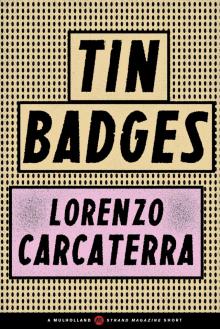 Tin Badges
Tin Badges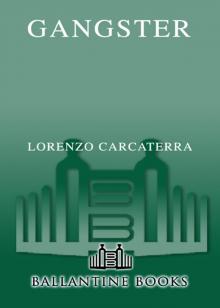 Gangster
Gangster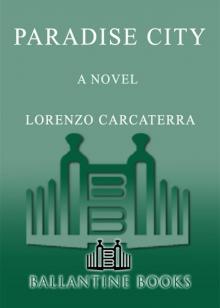 Paradise City
Paradise City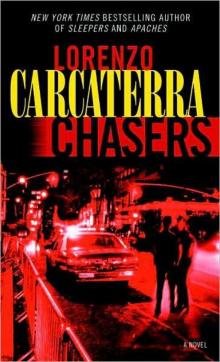 Chasers
Chasers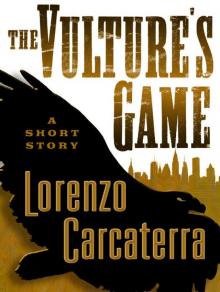 The Vulture's Game
The Vulture's Game Payback
Payback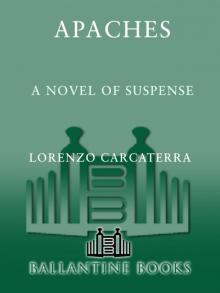 Apaches
Apaches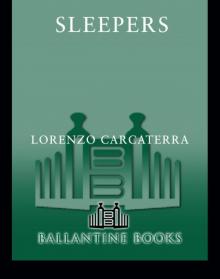 Sleepers
Sleepers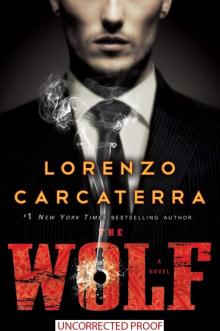 The Wolf
The Wolf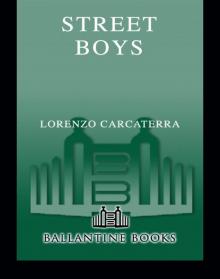 Street Boys
Street Boys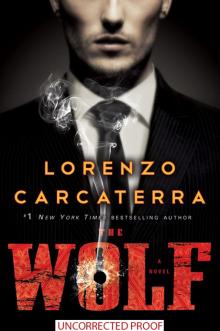 The Wolf: A Novel
The Wolf: A Novel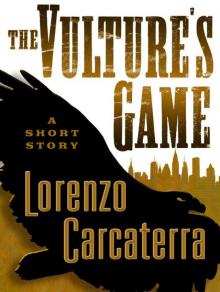 The Vulture's Game (Short Story)
The Vulture's Game (Short Story)